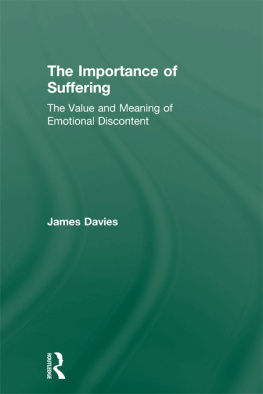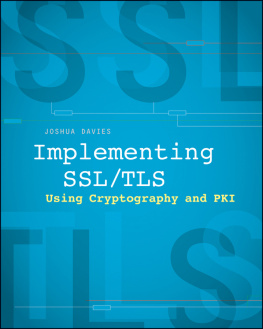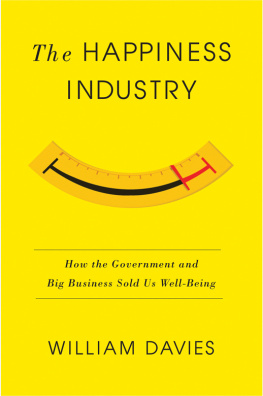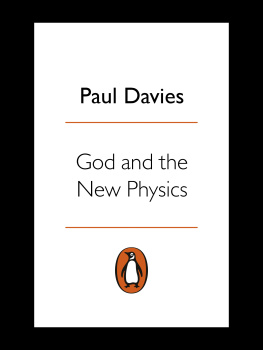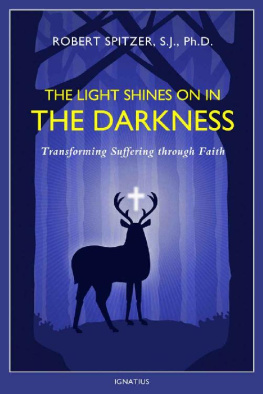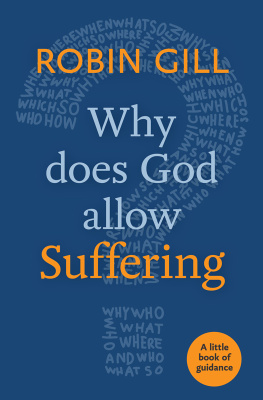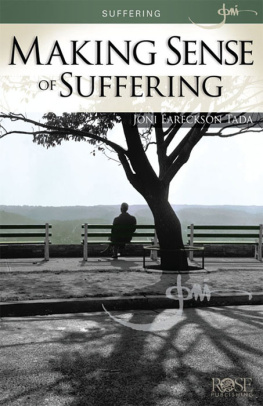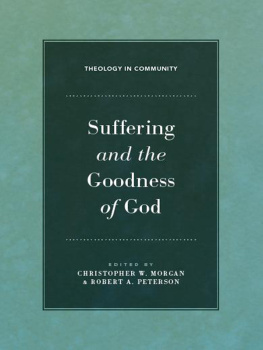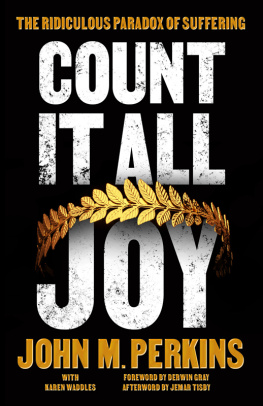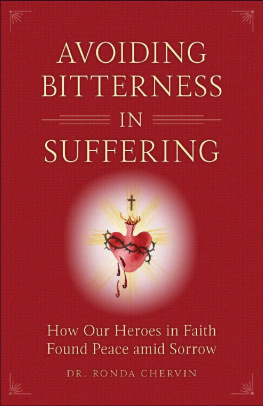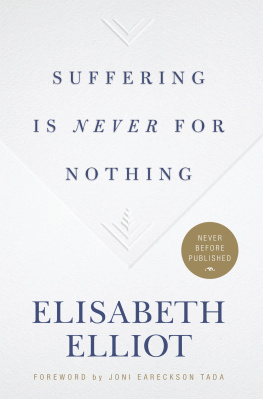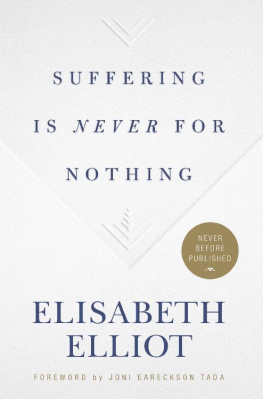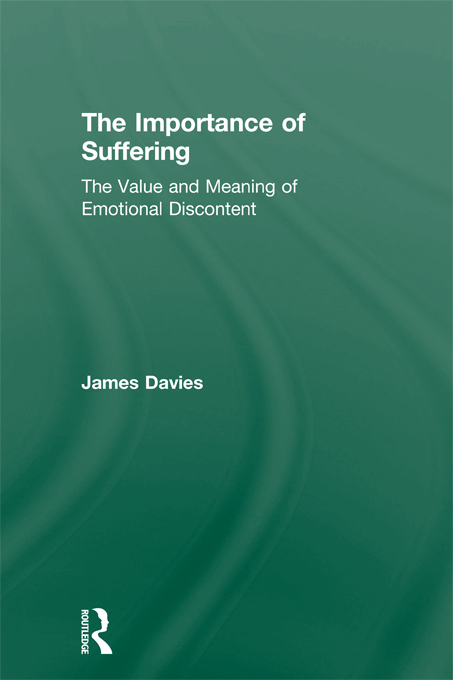The Importance of Suffering
In this book James Davies considers emotional suffering as part and parcel of what it means to live and develop as a human being, rather than as a mental health problem requiring only psychiatric, antidepressant or cognitive treatment. This book therefore offers a new perspective on emotional discontent and discusses how we can engage with it clinically, personally and socially to uncover its productive value.
The Importance of Suffering explores a relational theory of understanding emotional suffering, suggesting that suffering does not spring from one dimension of our lives, but is often the outcome of how we relate to the world internally in terms of our personal biology, habits and values, and externally in terms of our society, culture and the world around us. Davies suggests that suffering is a healthy call-to-change and shouldnt be chemically anaesthetised or avoided. The book challenges conventional thinking by arguing that if we understand and manage suffering more holistically, it can facilitate individual and social transformation in powerful and surprising ways.
The Importance of Suffering offers new ways to think about, and therefore understand suffering. It will appeal to anyone who works with suffering in a professional context including professionals, trainees and academics in the fields of counselling, psychotherapy, psychoanalysis, psychiatry and clinical psychology.
James Davies is a senior lecturer in the departments of psychology and anthropology at Roehampton University. He obtained his doctorate in social anthropology from the University of Oxford, and is also a qualified psychotherapist. He has practised in various settings including the NHS, and has delivered lectures at many universities including Yale, Brown, CUNY, Oxford, London and Harvard.
The Importance of Suffering
The value and meaning of emotional
discontent
James Davies

First published 2012
by Routledge
27 Church Road, Hove, East Sussex BN3 2FA
Simultaneously published in the USA and Canada
by Routledge
711 Third Avenue, New York NY 10017
Routledge is an imprint of the Taylor & Francis Group, an Informa business
2012 James Davies
All rights reserved. No part of this book may be reprinted or reproduced or utilised in any form or by any electronic, mechanical, or other means, now known or hereafter invented, including photocopying and recording, or in any information storage or retrieval system, without permission in writing from the publishers.
Trademark notice: Product or corporate names may be trademarks or registered trademarks, and are used only for identification and explanation without intent to infringe.
British Library Cataloguing in Publication Data
A catalogue record for this book is available from the British Library
Library of Congress Cataloging in Publication Data
Davies, James (James Peter)
The importance of suffering : the value and meaning of emotional discontent / James Davies.
p. cm.
Includes bibliographical references and index.
ISBN 978-0-415-66779-1 (hbk.) ISBN 978-0-415-66780-7 (pbk.) 1. Suffering. 2. Emotions. 3. Mental health. I. Title.
BF789.S8D38 2012
155.9'3dc23
2011028444
ISBN: 978-0-415-66779-1 (hbk)
ISBN: 978-0-415-66780-7 (pbk)
ISBN: 978-0-203-13778-9 (ebk)
Typeset in Times by Garfield Morgan, Swansea, West Glamorgan
Paperback cover design by Andrew Ward
Printed by TJ International Ltd, Padstow, Cornwall
You desire to know the art of living, my friend? It is contained in one phrase: make use of suffering.
Henri-Frdric Amiel
Contents
Acknowledgements
I have written this book, on and off, over a period of four years. During this time countless individuals have left their mark upon its pages by inspiring my thoughts, offering comments and helping to refine my ideas. I wish to thank Professor Ann MacLarnon, Professor Del Loewenthal and my colleagues in psychotherapy and anthropology at Roehampton University for providing a facilitative working environment as well as constant goodwill and support. I also wish to thank my students at Roehampton, some of whom kindly read sections of this book and offered useful comments. I thank my research assistant, Evelyn Tong, for reading the manuscript carefully and being scrupulous in her commentary. Others who have been significant are Dr Matias Spektor and Benjamin Hebbert (for our important yet too rare conversations), and Professor Richard Schoch, Dr Karem Roitman and Mark Knight (for reading chapters and offering comments). I also thank Nancy Browner, James Wilkinson and Rob Waygood for their help and goodwill during difficult times. I thank Alicia Davies for her useful advice and commentary. While preparing this book I discussed many of its ideas at some useful places. Id like to thank the Harvard Divinity School and especially Professor Michael Jackson for helping me discuss my ideas there. My gratitude also to Professor Vincent Crapanzano for organising my seminar at the City University of New York (CUNY). Other important centres include the Yale Divinity School, and the Department of Social and Cultural Anthropology at Oxford University. The conversations these places afforded were seminal in helping this book along. I like would like to thank Christine Firth for her copy editing, as well as Kate Hawes, Dawn Harris, Sarah Gibson and Jane Harris at Routledge for their excellent editorial work.
Finally, I dedicate this book to my darling wife, Dr Alexandra Buckle, and to our baby girl, who, by the time this book is published, will have finally entered our world (and will then have a name). I pledge I shall do my best to make her passage as smooth as possible.
Introduction
In 1980 a book was published in psychiatry that would fundamentally change how we currently understand and manage emotional suffering. This book was called the DSM-III the Diagnostic and Statistical Manual of Mental Disorders (American Psychiatric Association (APA) 1980). The purpose of this book was to list all the mental disorders which psychiatrists believed to exist at that time. The list comprised 265 disorders, and the book was 494 pages long. This list was developed to improve the uniformity and validity of psychiatric diagnosis. It aimed to achieve this by ensuring that all psychiatrists used this list to guide them in identifying from their patients symptoms what mental disorder they suffered from. Depending upon the symptoms the patient presented, he or she would be labelled with one of the disorders listed in the book.
The taskforce who wrote the DSM-III was headed by one of the most powerful psychiatrists of the day, Dr Robert Spitzer, and it was the aim of this taskforce to make the new DSM radically improve the effectiveness of psychiatry. What the taskforce did not anticipate, however, was that this book would unleash a new set of serious problems upon psychiatry that would undermine the books original aim. The most severe of these problems Spitzer himself was to later acknowledge in a BBC documentary aired in 2007 where he was interviewed by the films maker, Adam Curtis. In this interview Curtis asked Spitzer whether the DSM had committed any errors. More precisely, he asked whether when creating DSM-III the taskforce had adequately distinguished between human experiences that were disordered, and human experiences that were not. In effect, had the psychiatrists, when creating their list of mental disorders, wrongly labelled many normal human feelings of sadness and anxiety as indicating medical disorders? Surprisingly, and with noticeable regret, Spitzer admitted that this had indeed occurred. He then went on to explain why it had occurred: What happened is that we made estimates of prevalence of mental disorders totally descriptively, without considering that many of these conditions might be normal reactions which are not really disorders. And thats the problem. Because we were not looking at the context in which those conditions developed.

